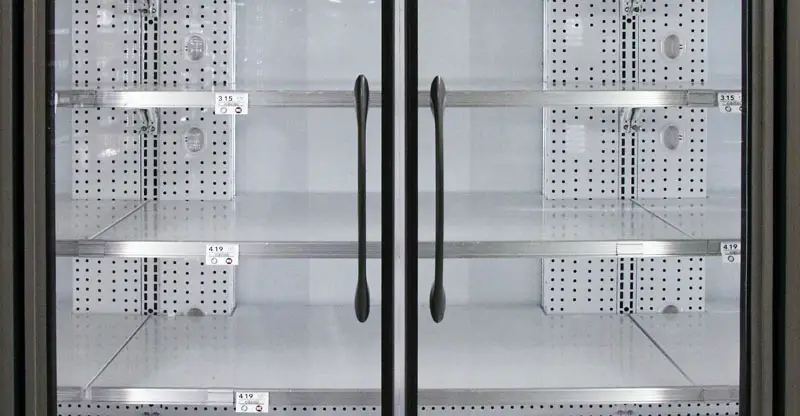A refrigerator is a large purchase with long-term costs associated with it. They’re an investment with details that many people don’t know about, such as the actual difference between a refrigerator vs. fridge.
So… what is the difference?
In short, they're the same thing!
But that doesn't mean that there isn't more to break down here. Refrigerators come in a large number of varied types and sizes, meaning that the name alone doesn't tell you everything you may need to know. Refrigerators are expensive, which means that you'll want to do your research before buying the first product that pops up on Google.
When buying a refrigerator, it's important to take into account what your needs are. Obviously, you need to keep food and drinks cold.
But do you need them to freeze things? How much space are you working with? Can your home handle the power needs of the fridge of your dreams?
Important Questions to Ask Before Buying a Refrigerator
So, you moved into a new home (congratulations!) and now — you need a refrigerator.
There are countless models of refrigerators. From side-by-side to over-under to the more traditional chest-style that you may remember from grandma's house.
But how are you supposed to make a decision when inundated with countless models and styles online?
The best way is to determine what your needs are by asking these questions:
How Much Space Do I Have?
This is a fundamental question. Depending on the home in which you live, you may not have a lot of space to work with.
This means measuring and planning are key steps to purchasing the fridge of your wildest dreams. If you have a pre-allocated space for a fridge, as many kitchens do, this may be a bit easier.
Traditional Refrigerator Vs. Chest Fridge
Of the two most common refrigerators, side-by-side ones tend to take up less horizontal space, instead using height to their benefit.
square footage (or meterageDo I Care About Energy Efficiency?
Beyond space, the most common barrier to buying a refrigerator is the cost that follows the initial purchase. (Not to mention, the fridge vs. refrigerator environmental impact.)
This makes your respective food-chiller's energy efficiency vital to long-term feasibility. Nobody wants to wake up to a massive power bill just because they wanted an extra-cold soft drink. And we all want to do our part to take care of the planet.
What are some ways to spot an efficient fridge?
A top-mounted freezer tends to be more energy efficient than others
Older refrigerators generally become less efficient with age
Fridges in the 16-20 cubic foot range tend to be the most energy-efficient, while larger ones are often more of a power suck
So make sure you're not checking Craigslist for a cheap score. I know it's tempting, but it'll come back to bite you in time.
Final Tip: Look for Energy Star certified refrigerators. The U.S. Environmental Protection Agency and the U.S. Department of Energy approve these as truly efficient models.
You may also like: Who Makes Whirlpool Refrigerators? [+ the Most Popular Styles].
What's My Budget?
Speaking of a cheap score, how much money do you have to work with?
This is (obviously) the biggest deciding factor when it comes to making a large, long-term purchase like this. If you're Mr. (or Ms.) Moneybags, then you're likely set! Just buy what looks the best in your home and enjoy your chilly beverages and perfectly preserved food.
However, if you're not made of money, here's where to start:
Check your local hardware stores and talk to their associates. Often, you'll find the most energy-efficient budget models at stores such as Lowe's and Home Depot. The best part is that these will be three-digit price tags — no need to worry about seeing a comma when checking out.
And again, I'm going to urge you to check if your potential purchase is Energy Star rated. While these models may be slightly more expensive, the long-term savings will be absolutely worth it.
Do I Need My Fridge to be Easily Accessible?
If you have height and reach on your side, you likely don't need to worry about this. But not everyone is tall or mobile enough to use any fridge.
If you use a wheelchair, suffer mobility issues, or are just plain short, tall refrigerators can mean that you don't get to use all of it. (Or worse, you forget about stuff on the top shelf and end up with a science project growing in your fridge.)
This is (unfortunately) where tradeoffs come into play. Not every fridge can do everything for everyone. You'll likely need to weigh the cost for a more easily accessible fridge over one that's affordable and efficient.
Related: How Long to Wait Before Putting Food in a New Refrigerator?

Refrigerator Cooler Vs. Minifridge
You may be wondering, “What about my old college minifridge?”
Okay, get this:
Just because you have an old minifridge lying around from your frat days doesn't mean it should replace a real refrigerator.
First off, it probably smells like mystery meat — that's no good.
Most importantly: refrigerator kwh vs. mini fridge kwh.
They're not nearly as efficient at keeping energy costs low as an Energy Star approved, full-size, top-mounted freezer and fridge.
You also lose out on the ice and water dispensers that often come with full-sized refrigerators, and now you can't freeze anything (on purpose).
Don't get me wrong — minifridges have their place. They're great at holding drinks when you're entertaining guests, but that doesn't mean it should be your go-to.
Plus, on the accessibility side, they're rough on your knees.
Final Thoughts
Refrigerators (or fridges) are a big purchase with many critical differences between them.
However, the name discrepancy is simply created out of ease and doesn’t directly imply any differences between models. Cost, energy efficiency, space, and accessibility are all crucial factors to look at when purchasing.

